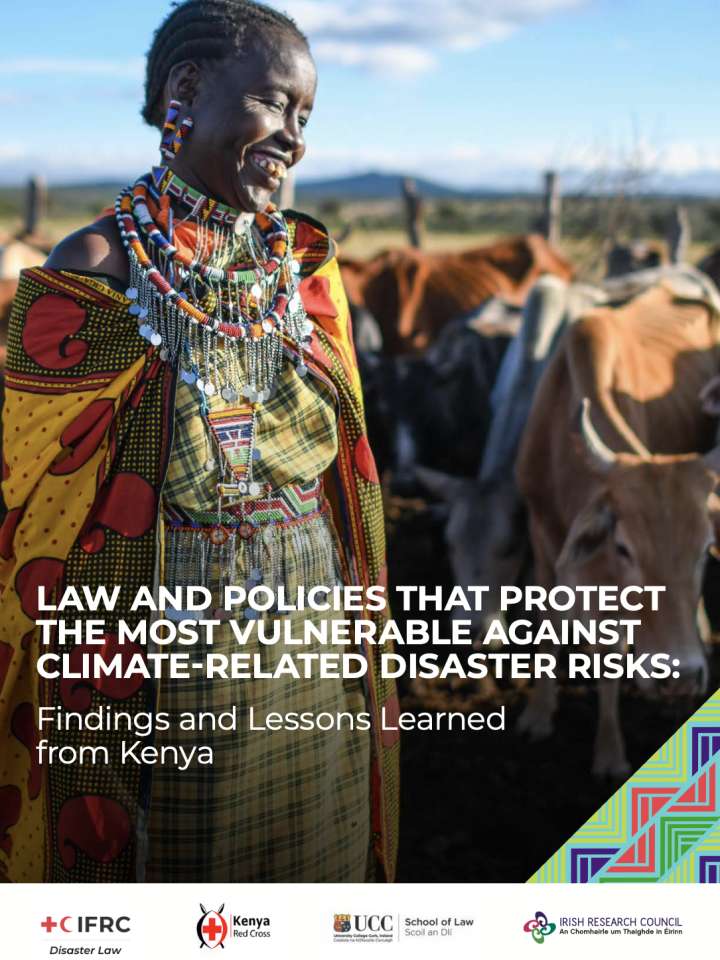Law and policies that protect the most vulnerable against climate-related disaster risks: Findings and lessons learned from Kenya
This study represents a complementary output of the research project “Leave No One Behind - Developing Climate-Smart/Disaster Risk Management Laws that Protect People in Vulnerable Situations for a Comprehensive Implementation of the UN Agenda 2030”. The project highlights the need for greater coherence between Climate Change Adaptation (CCA) and Disaster Risk Reduction (DRR), as part of a holistic approach to global governance as envisioned within the framework of the UN Agenda 2030 and its centrepiece, the Sustainable Development Goals (SDGs).
The aim of the present study is two-fold. On the theoretical level, it will contribute to the discourse on achieving a sustainable integration of CCA andDRR, by exploring the role of law and policy making in Kenya. In adding to the discourse on protection of people in vulnerable situations, the study will investigate community participation in the development of CCA and DRR laws and policies, and its potential impact on community resilience. On a more practical level, this study was developed as a tool of reference for the institutional and operational mandate of the Kenya Red Cross Society (KRCS) and the International Federation of the Red Cross and Red Crescent Societies (IFRC) Disaster Law Programme. It is expected to provide an evidence-based model for law and policymakers to advocate for effective normative frameworks that protect the most vulnerable against the impacts of major climate-related hazards.
Explore further
